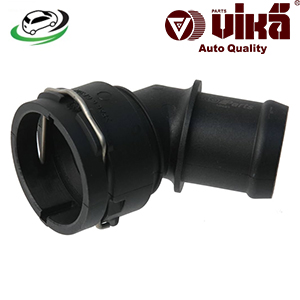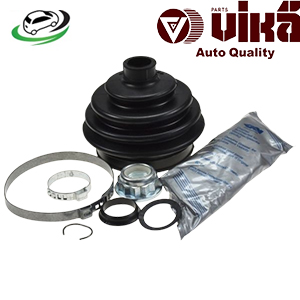-25%
Get Fuel Filter VW Golf IV TDI/ VW Jetta IV TDI/ VW New Beetle TDI/ VW Passat B5 TDI 1J0127401A
The fuel filter is an essential component of a vehicle’s fuel delivery system, ensuring that the engine receives clean fuel free of contaminants. It plays a vital role in maintaining the efficiency and longevity of the engine by preventing dirt, rust, and other impurities from reaching the fuel injectors or carburetor. This detailed exploration will cover the fuel filter’s function, types, construction, installation, maintenance, and common issues.
Function of the Fuel Filter
The primary function of the fuel filter is to remove impurities from the fuel before it reaches the engine. These impurities can include dirt, rust particles, paint chips, and other debris that may have entered the fuel tank during refueling or from the fuel itself. Over time, these contaminants can accumulate and cause significant damage to the engine, leading to reduced performance, increased fuel consumption, and potentially costly repairs.
By filtering out these particles, the fuel filter ensures that only clean fuel reaches the fuel injectors or carburetor, allowing for efficient combustion. This is crucial for maintaining engine performance, fuel efficiency, and reducing harmful emissions.
Types of Fuel Filters
Fuel filters come in various types, each designed for specific applications and vehicle types. The most common types include:
- Inline Fuel Filters:
- Design: Inline fuel filters are placed along the fuel line, typically between the fuel tank and the engine. They are cylindrical and contain filtering media that traps contaminants as fuel passes through.
- Usage: These filters are commonly used in both carbureted and fuel-injected engines. They are easy to replace and are often found in the engine bay or under the vehicle near the fuel tank.
- Cartridge Fuel Filters:
- Design: Cartridge fuel filters consist of a replaceable filter element housed within a reusable casing. The casing is usually made of metal or plastic, and the filter element is made of paper, synthetic material, or a combination of both.
- Usage: These filters are common in modern vehicles, particularly those with diesel engines. They are typically mounted in the engine bay and are designed to be easily serviced.
- Spin-On Fuel Filters:
- Design: Spin-on fuel filters are similar to oil filters in design, with a metal canister that contains the filter media. The canister is screwed onto a filter head, making it easy to replace during maintenance.
- Usage: These filters are commonly used in trucks, SUVs, and some diesel-powered vehicles. They are known for their durability and ease of replacement.
- Diesel Fuel Filters with Water Separator:
- Design: Diesel fuel filters often come with an integrated water separator to remove water from the fuel, which is a common issue in diesel engines. The filter typically has a drain valve at the bottom to remove accumulated water.
- Usage: These filters are essential in diesel engines, as water in the fuel can cause severe damage to the fuel injectors and other components. They are usually located in the engine bay and require regular maintenance.
- Strainer Filters:
- Design: Strainer filters are coarse filters usually located inside the fuel tank, often attached to the fuel pump. They act as the first line of defense against large debris and particles.
- Usage: These filters are used in combination with other fuel filters and are commonly found in both gasoline and diesel vehicles. They require less frequent replacement but should be checked during fuel pump maintenance.
Construction and Materials
Fuel filters are constructed from materials that can withstand the harsh conditions of the fuel system, including exposure to gasoline or diesel, high pressure, and varying temperatures. The key components of a fuel filter include:
- Filter Media:
- Material: The filter media is typically made from paper, cellulose, or synthetic fibers. Synthetic materials, such as polyester or fiberglass, offer better filtration efficiency and durability compared to paper-based filters.
- Function: The media traps contaminants while allowing fuel to pass through. The efficiency of the filter is determined by the size of the particles it can trap, usually measured in microns.
- Casing:
- Material: The casing is usually made from metal or high-strength plastic, designed to protect the filter media and withstand the pressure of the fuel system.
- Function: The casing provides structural integrity to the filter and ensures that the fuel flows through the filter media without leaking.
- End Caps and Seals:
- Material: The end caps are typically made from metal or plastic and are bonded to the filter media. Seals are made from rubber or synthetic materials to prevent fuel from bypassing the filter media.
- Function: End caps hold the filter media in place, while seals ensure that all fuel passes through the filter media for proper filtration.
- Bypass Valve (if equipped):
- Material: The bypass valve is usually made of metal or high-strength plastic.
- Function: The bypass valve allows fuel to bypass the filter media if it becomes clogged, ensuring that the engine continues to receive fuel. However, this means unfiltered fuel can enter the engine, so regular filter maintenance is crucial.
Benefits of Fuel Filters
1. Protection of Engine Components
- Contaminant Removal: The primary benefit of a fuel filter is its ability to remove contaminants such as dirt, rust, and debris from the fuel. These impurities can cause significant wear and damage to the engine’s fuel injectors or carburetor, which are sensitive components that rely on clean fuel for proper operation.
- Preventing Engine Wear: By filtering out harmful particles before they reach the engine, the fuel filter helps reduce engine wear and tear, leading to a longer engine life and fewer mechanical issues.
2. Improved Engine Performance
- Consistent Fuel Flow: A clean fuel filter ensures a consistent flow of clean fuel to the engine, which is essential for optimal combustion. This consistency helps the engine run smoothly and perform at its best.
- Enhanced Acceleration: By ensuring that the engine receives the correct amount of fuel, a properly functioning filter helps improve throttle response and acceleration, contributing to a more enjoyable driving experience.
3. Increased Fuel Efficiency
- Efficient Combustion: Clean fuel leads to more efficient combustion in the engine, which can improve fuel economy. When the engine burns fuel more efficiently, it uses less fuel to achieve the same power output, leading to better miles per gallon (MPG).
- Reduced Fuel Consumption: A clogged or dirty fuel filter can restrict fuel flow, causing the engine to work harder and consume more fuel. By keeping the filter clean, you maintain optimal fuel flow and reduce unnecessary fuel consumption.
4. Prevention of Engine Stalling and Rough Idling
- Stable Engine Operation: A clogged fuel filter can lead to inconsistent fuel delivery, causing engine stalling or rough idling. By preventing clogging, the filter helps maintain stable engine operation and reduces the risk of stalling or rough running.
- Smooth Idle: Proper fuel filtration helps ensure that the engine idles smoothly by providing a steady flow of clean fuel, which is crucial for maintaining a consistent idle speed.
5. Reduction of Emissions
- Lower Emissions: Efficient combustion resulting from clean fuel can help reduce harmful emissions from the exhaust. A well-maintained fuel filter contributes to cleaner exhaust gases, which is beneficial for the environment and helps meet emissions regulations.
- Cleaner Exhaust System: By preventing contaminants from reaching the engine, the fuel filter helps protect the catalytic converter and other emission control components from damage, which contributes to the overall health of the exhaust system.
6. Prevention of Fuel Pump Damage
- Extended Pump Life: A clogged fuel filter can cause the fuel pump to work harder to push fuel through the obstruction. This additional strain can lead to premature wear and failure of the fuel pump. By keeping the filter clean, you reduce the strain on the fuel pump and extend its lifespan.
- Reduced Maintenance Costs: Preventing fuel pump damage helps avoid costly repairs or replacements. Regularly replacing the fuel filter can save money by protecting the fuel pump from unnecessary wear.
7. Enhanced Reliability and Safety
- Reliable Operation: A clean fuel filter ensures that the engine receives a steady and reliable supply of clean fuel, which is essential for reliable vehicle operation. This reduces the likelihood of unexpected breakdowns or performance issues.
- Improved Safety: Proper engine performance and fuel efficiency contribute to safer driving conditions. By maintaining the fuel filter, you help ensure that the vehicle operates reliably and predictably, reducing the risk of breakdowns or hazardous situations on the road.
Maintenance and Replacement
Regular maintenance of the fuel filter is crucial for the longevity and efficiency of the vehicle’s engine. The filter should be replaced according to the manufacturer’s recommendations, usually every 20,000 to 40,000 miles, or more frequently for vehicles that operate in harsh conditions or use lower-quality fuel.
Signs That a Fuel Filter Needs Replacement:
- Engine Performance Issues: A clogged fuel filter can restrict fuel flow, leading to poor acceleration, stalling, or difficulty starting the engine.
- Increased Fuel Consumption: A dirty filter can cause the engine to work harder, resulting in increased fuel consumption.
- Check Engine Light: A clogged fuel filter may trigger the check engine light due to fuel pressure issues.
- Fuel Pump Noise: If the fuel pump is working harder to push fuel through a clogged filter, it may produce a whining noise.
Common Issues with Fuel Filters
While fuel filters are generally reliable, they can experience problems that affect the fuel system. Some common issues include:
- Clogging:
- Cause: Over time, the filter media can become saturated with contaminants, restricting fuel flow.
- Solution: Regular replacement of the filter based on manufacturer recommendations can prevent clogging.
- Leaks:
- Cause: Improper installation, damaged seals, or a cracked casing can cause fuel leaks.
- Solution: Ensure proper installation, check for damage during maintenance, and replace any faulty components.
- Bypass Valve Failure (if equipped):
- Cause: If the bypass valve fails, it can either block fuel flow entirely or allow unfiltered fuel to reach the engine.
- Solution: Replace the filter immediately if a bypass valve failure is suspected.
- Corrosion:
- Cause: Exposure to moisture or contaminated fuel can cause the filter casing or internal components to corrode.
- Solution: Use high-quality fuel and replace the filter if any signs of corrosion are detected.
Follow us on Facebook for more parts.



